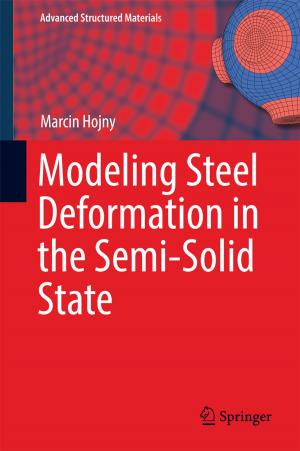A Short Course in Ordinary Differential Equations
Nonfiction, Science & Nature, Mathematics, Differential Equations, Mathematical Analysis| Author: | Qingkai Kong | ISBN: | 9783319112398 |
| Publisher: | Springer International Publishing | Publication: | October 21, 2014 |
| Imprint: | Springer | Language: | English |
| Author: | Qingkai Kong |
| ISBN: | 9783319112398 |
| Publisher: | Springer International Publishing |
| Publication: | October 21, 2014 |
| Imprint: | Springer |
| Language: | English |
This text is a rigorous treatment of the basic qualitative theory of ordinary differential equations, at the beginning graduate level. Designed as a flexible one-semester course but offering enough material for two semesters, A Short Course covers core topics such as initial value problems, linear differential equations, Lyapunov stability, dynamical systems and the Poincaré—Bendixson theorem, and bifurcation theory, and second-order topics including oscillation theory, boundary value problems, and Sturm—Liouville problems. The presentation is clear and easy-to-understand, with figures and copious examples illustrating the meaning of and motivation behind definitions, hypotheses, and general theorems. A thoughtfully conceived selection of exercises together with answers and hints reinforce the reader's understanding of the material. Prerequisites are limited to advanced calculus and the elementary theory of differential equations and linear algebra, making the text suitable for senior undergraduates as well.
This text is a rigorous treatment of the basic qualitative theory of ordinary differential equations, at the beginning graduate level. Designed as a flexible one-semester course but offering enough material for two semesters, A Short Course covers core topics such as initial value problems, linear differential equations, Lyapunov stability, dynamical systems and the Poincaré—Bendixson theorem, and bifurcation theory, and second-order topics including oscillation theory, boundary value problems, and Sturm—Liouville problems. The presentation is clear and easy-to-understand, with figures and copious examples illustrating the meaning of and motivation behind definitions, hypotheses, and general theorems. A thoughtfully conceived selection of exercises together with answers and hints reinforce the reader's understanding of the material. Prerequisites are limited to advanced calculus and the elementary theory of differential equations and linear algebra, making the text suitable for senior undergraduates as well.















